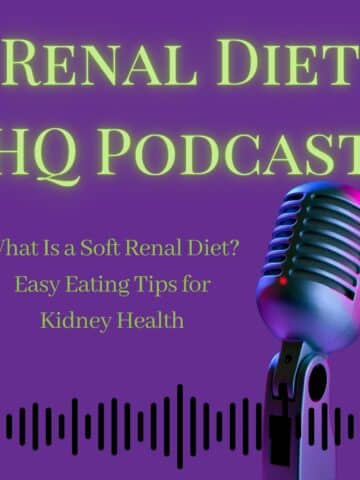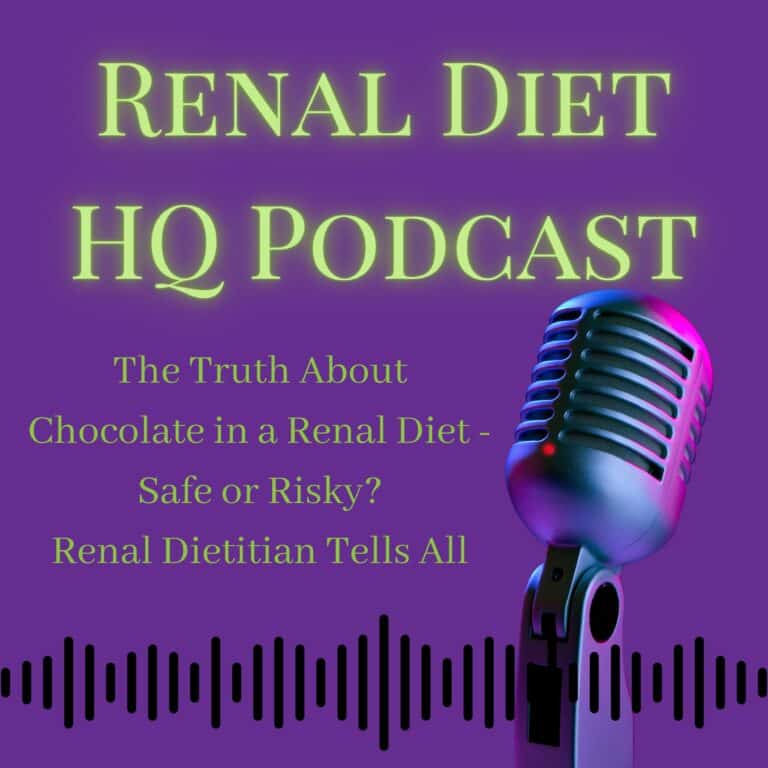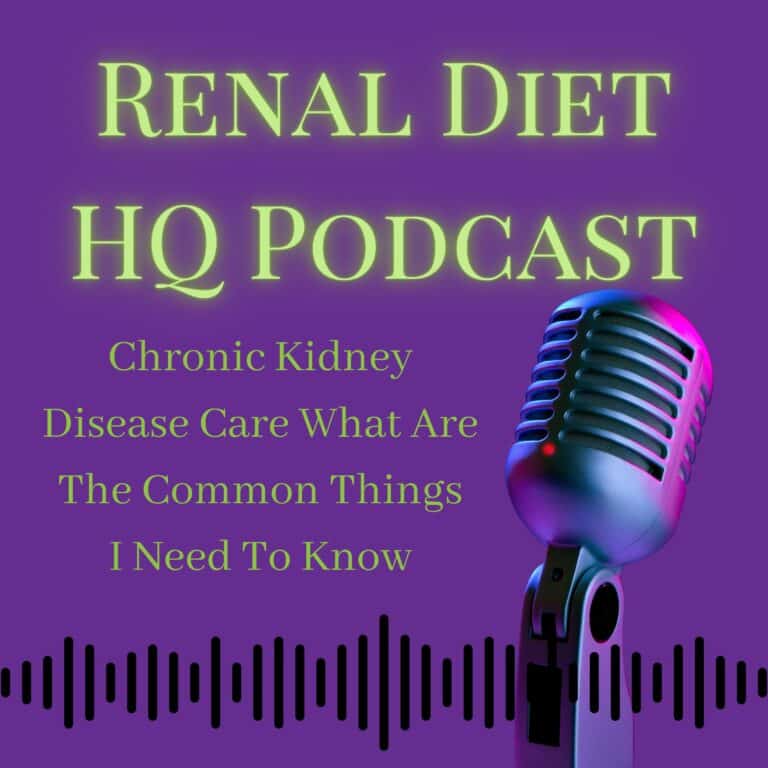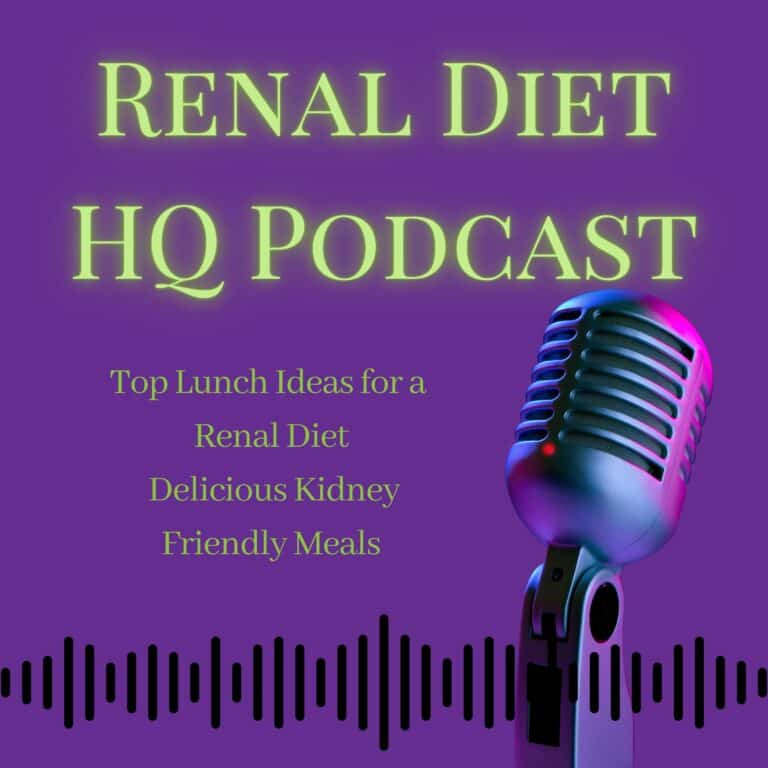Processed Foods To Avoid With Chronic Kidney Disease (CKD) | Nutrition Guide-Podcast
Podcast: Play in new window | Download
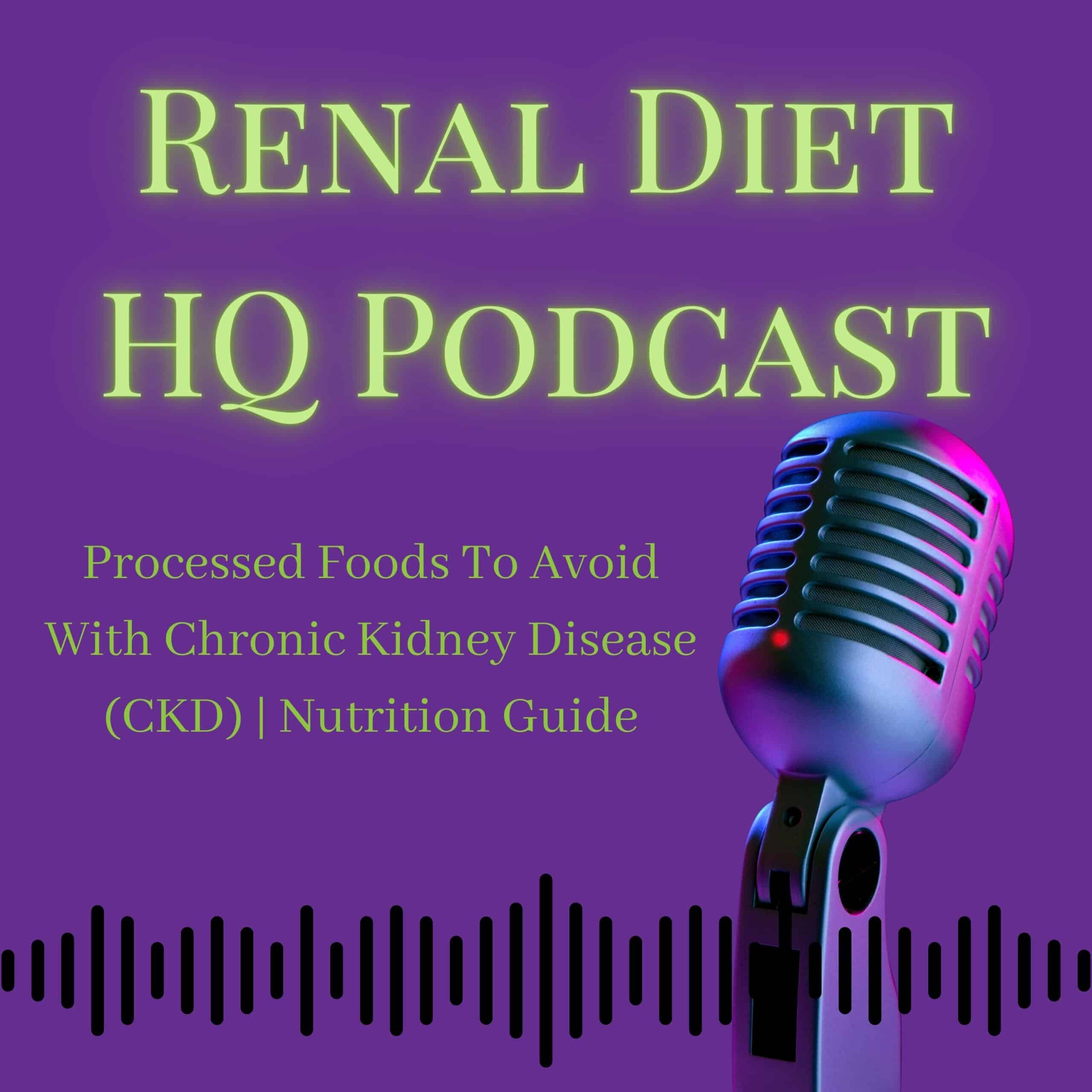
In the United States, processed foods dominate the dietary landscape, often overshadowing healthier whole food options in grocery stores. While processed foods may offer convenience and affordability, their consumption poses significant risks to health, particularly for individuals living with chronic conditions like kidney disease. In this comprehensive guide, we'll delve into the effects of processed foods on kidney health, identify harmful ingredients to avoid, and explore healthier alternatives to support overall well-being.
For More Recipes and Ideas --->> Get Your Free Meals and Recipes That Are Perfect for Pre-Dialysis Diets, Pre-Dialysis with Diabetes, or Dialysis Diets.
About the Author
Hello, I'm Mathea Ford, a registered dietitian nutritionist specializing in chronic kidney disease and the founder of RenalDietHQ.com. With a focus on empowering individuals to make delicious yet healthful changes to their meals, I've dedicated myself to helping people improve their health and well-being through dietary modifications tailored specifically to their needs.
What Are Processed Foods?
Processed foods encompass a wide range of products that have undergone various forms of alteration from their original state. While some processing methods are harmless, such as washing or chopping fresh produce, others involve chemical additives and alterations that can be detrimental to health. Chemically processed foods often contain additives like preservatives, colorants, and sweeteners, which can have adverse effects on the body, especially for individuals with kidney disease.
Health Risks of Processed Foods for Kidney Disease Patients
The consumption of processed foods poses significant health risks for individuals with kidney disease. These foods are typically high in sodium, sugar, and phosphorus, all of which can exacerbate existing conditions and contribute to kidney damage. Excessive sodium intake, commonly found in processed foods, can lead to hypertension and fluid retention, placing added strain on the kidneys. Moreover, phosphorus additives in processed meats can further compromise kidney function, highlighting the importance of avoiding such products.
Identifying and Avoiding Processed Foods
When navigating the aisles of grocery stores, it's essential to be vigilant about identifying and avoiding processed foods. Reading ingredient labels is key to uncovering hidden additives and chemicals. Opting for whole, unprocessed foods like fresh fruits, vegetables, and whole grains can significantly improve health outcomes for individuals with kidney disease. By embracing a diet rich in real, nutrient-dense foods, one can reduce the risk of exacerbating kidney-related complications.
Sodium Content in Processed Foods
High sodium content is a prevalent issue in processed foods and can have dire consequences for kidney health. Excessive sodium intake can lead to fluid retention, elevated blood pressure, and cardiovascular problems, all of which can further damage the kidneys. To mitigate these risks, it's essential to choose low-sodium alternatives and prioritize fresh, homemade meals over processed options. By carefully monitoring sodium intake and opting for whole foods, individuals with kidney disease can better manage their health.
Phosphorus Additives in Processed Meats
Processed meats often contain phosphorus additives, which can adversely affect kidney function. These additives are used to enhance texture, extend shelf life, and improve flavor but can exacerbate existing kidney-related complications. To reduce phosphorus intake, individuals with kidney disease are encouraged to opt for lean protein alternatives like fresh poultry, fish, and plant-based sources. By making informed dietary choices, one can support kidney health and overall well-being.
Potassium Levels in Dried Fruits
While dried fruits are often touted as a healthy snack option, they can pose challenges for individuals with kidney disease due to their high potassium content. Excessive potassium intake can disrupt mineral balance in the body and exacerbate kidney-related complications. To manage potassium levels, it's essential to choose lower-potassium fruits and practice portion control. By incorporating kidney-friendly alternatives into one's diet, individuals can support optimal kidney function and overall health.
Alternative Treats for Kidney-Friendly Diets
Enjoying sweet treats can still be a part of a kidney-friendly diet with the right alternatives. Carob chips, vanilla-flavored desserts, and fruit-based treats offer delicious options with lower phosphorus and potassium content. By indulging in moderation and consulting with a registered dietitian, individuals can satisfy their sweet cravings while prioritizing kidney health.
The impact of processed foods on kidney health cannot be overstated. By understanding the risks associated with processed foods and making informed dietary choices, individuals with kidney disease can better manage their condition and improve overall well-being. Remember, consultation with a registered dietitian is essential for personalized dietary guidance and support on the journey to optimal kidney health. Let's prioritize health and well-being by embracing whole, nutrient-dense foods and avoiding processed options. Your kidneys will thank you for it.
Learn more about Easter Meal For Chronic Kidney Disease - Full Handout With Nutritional Info- Podcast
Learn more about Navigating Daily Life with Chronic Kidney Disease: An Inside Look-Podcast




